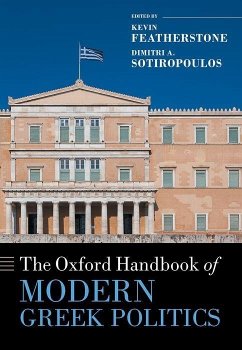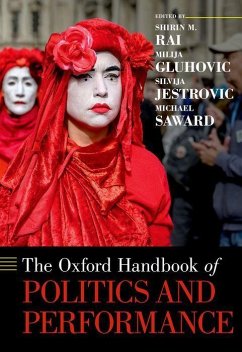
The Oxford Encyclopedia of the Military in Politics
3-Volume Set
Versandkostenfrei!
Versandfertig in über 4 Wochen
612,99 €
inkl. MwSt.

PAYBACK Punkte
306 °P sammeln!
The Oxford Encyclopedia of the Military in Politics is like no other work on this subject because it provides the space to examine the relationships between governments and their military in roughly 100 political systems. It quickly becomes clear that there is a great deal of variety in how these relationships play out over time. The country studies are complemented by an additional 32 studies examining more general questions about how the military interact with politicians and the rest of their country's population. This is a critical resource for specialists on the study of civil-military re...
The Oxford Encyclopedia of the Military in Politics is like no other work on this subject because it provides the space to examine the relationships between governments and their military in roughly 100 political systems. It quickly becomes clear that there is a great deal of variety in how these relationships play out over time. The country studies are complemented by an additional 32 studies examining more general questions about how the military interact with politicians and the rest of their country's population. This is a critical resource for specialists on the study of civil-military relations. At the same time, most of the chapters are readily accessible to the average reader and do not require any specialized training in the field.












